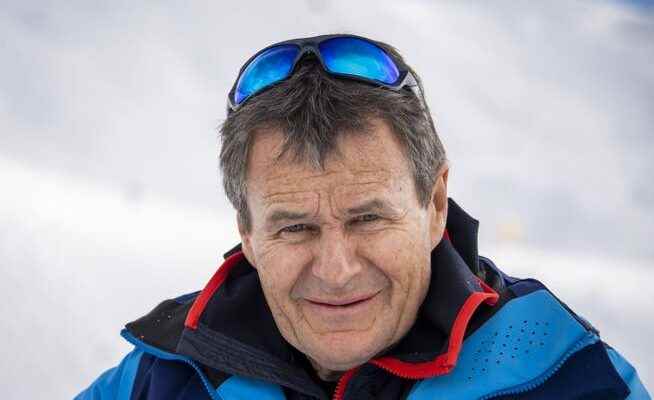Do autumn glacier races still make sense and have a right to exist in times of climate crisis? Yes, thinks Franz Julen. Markus Waldner, the FIS race director, on the other hand, advocates a later start to the season.
Still convinced that glacier races are important: Zermatt OC President Franz Julen.
Three of the first four races of the season have been cancelled, the fifth and sixth are very much on the brink: the start of the World Cup autumn, which will eventually lead to the World Cup winter, gives rise to major discussions about the sense or nonsense of glacier races at the end of October and the beginning of October November.
On Saturday morning, the women’s giant slalom in Sölden had to be canceled due to bad weather. On Saturday afternoon, due to a lack of snow in the lowest part of the course, the World Cup premieres in Zermatt and Cervinia, where two men’s downhill runs should have taken place next weekend, were canceled. On Tuesday it will be decided whether at least the two women’s descents on November 5th and 6th can be held at the foot of the Matterhorn. The chances that this will work are not good.
More than bad luck
The transnational races starting in Valais and finishing in the Aosta Valley are basically a welcome innovation. Now, however, this prestige project has sparked criticism of autumnal ski races in times of the climate crisis. The fact that autumn is so mild and dry in the year of the most extreme glacier melt to date cannot simply be dismissed as artists’ bad luck.
After all, the Swiss-Italian organizers around the OC President Franz Julen will not suffer any financial damage. “All advertising rights have been sold and the budget is already balanced in the first year,” says Julen. “The income that we lose is insured, so we don’t get into trouble.”
The voices propagating a later start of the season are becoming more and more numerous. Markus Waldner, the race director of the World Ski Federation FIS on the men’s side, said on Saturday: “We have to respect mother nature and the signals of climate change – and rethink the data.” The remarkable thing about the statement: It is Waldner’s employer who is responsible for the World Cup calendar.
Franz Julen is open to a postponement of seven or fourteen days. “It’s definitely worth considering.” Of course, Julen can do little with the sometimes hysterical comments that deny glacier races the right to exist. «One should not question all skiing because of Sölden and Zermatt. I remain convinced that glacier racing is important – for the athletes, for the sport, for the ski and tourism industry.”
Nothing would work in Sölden without depots and artificial snow
Last but not least, the World Cup Opening in Sölden was held for the first time in 1993 as an impulse program for these industries. The two giant slaloms on the Rettenbach Glacier, which traditionally take place in October, were once considered the only World Cup races on natural snow. Those times are long gone. Nothing would work in Sölden at this time of the year without snow depots and artificial snowmaking.
With regard to the sale of snow sports articles and winter tourism, Julen, CEO of Intersport International from 2000 to 2016, does not think that a later start to the season is a problem. “If it stays warm for so long, sales will be delayed,” he says. The weather is currently much more encouraging for hiking than for skiing.
The next stop after Zermatt/Cervinia is Lech/Zürs, where parallel races are to take place on November 12th and 13th. Of course, the slopes there are still greenish-brown instead of white. Which is why race director Waldner called into the microphone at the team captains’ meeting to an OC representative from the Arlberg who was present: “Make snow, my friend!”
Did someone say something about Mother Nature?
